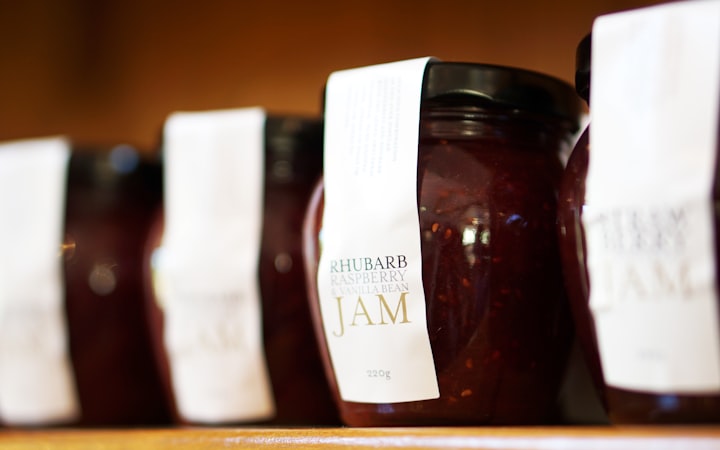Is advertising appalling, or is it just plain-old, extremely bad?
We could break the internet without it

The internet gurus keep warning us that if we continue to use adblockers, it will break the internet.
For those of you perhaps not too familiar with internet parlance, adblockers are little extensions you can add to your internet browser that run automatically to prevent intrusive and nearly-always unwanted advertisements popping up on your screen or when you are browsing the World Wide Web.
You know the sort – those that pop-up for the accident claims you've never made in connection with the accidents you've never had, but pop up each and every time you type the letters “acc” of the word “accountancy” into your computer. When not using adblockers, as you go about your web searching, social media meandering, or your visit to a real media site, big brother, who is of course watching you all the time, picks up what you are either searching for or looking at and, hey presto, a “relevant” advertisement pops up on your screen.
It’s all quite clever really. Except there are only so many times you can be asked whether you have accident insurance to claim, whether your investments haven't really been investments, a cheap flight you don’t want to a destination you have no interest in visiting, to sell something on ebay when you have nothing to sell, or an overpriced ticket (plus service fee) for an event you aren’t remotely interested in attending.
YouTube does a similar thing. You want to watch a video on how to plant out parsley shoots, and immediately the video is finished, off it trots, without invitation, to play you another video on how to plant a forest, then, if you let it, how to lay decking, and then onto a Caribbean cruise – because big brother fails to correctly distinguish between domestic decking, saving forests and the deck of a cruise ship.
So while for all the years and years the greedy internet service providers have been charging us a fortune for a phone line we never use to not make phone calls on top of our internet access fee, none of this money has gone to “the internet”, and so we really must now watch their appalling and intrusive advertisements in order for it to survive.
Hmmmm!
But I do wonder how the advertising agency gurus manage to secure their coma-inducing salaries given that current advertising has become so unbelievably lacklustre, poor and totally plagiarised. I'm not saying the creative agencies are necessarily responsible for it all, but I am sure, by and large, many of the creative agencies are in the thick of it somewhere.
Everything is now “awesome”. If you believe the advertisements, you can even do the physically impossible and “pre-order” – and here’s me thinking you can only either order something or not order something. Ordewr before you order? Bilge!
We are being told to snack happy, breathe happy, shop happy, move house happy – in fact, if one more advertiser tells me to do something “happy” I think I will probably scream, seeing as I no longer have any hair to tear out.
Let's take a few of these happy-chasing brands, many supported by truly appalling advertisements that are neither clever nor the least bit happy=-inducing. Well, they certainly don’t leave me in any state of happiness:
Gala Bingo - play happy
Jacobs - snack happy
Hyundai - get ready for happy
Rightmove - find your happy
Dreams - sleep happy
Hungry House - 25% more happy
Stork - bake someone happy
Fabreze - breathe happy
I really can't imagine the corporate viewing rooms being full of company directors all wetting themselves with delight at the unveiling of new campaigns like these above that are simply clones of each other.
There are a number of brands that have been persuaded to utilise bad English for their strapline. I find them neither clever nor creative. The malaise set in with mobile phone operator O2 and the positively appalling "Be more dog" campaign they ran, playing on the London Cockney slang for phone being “dog and bone”. Totally meaningless, not to mention grammatically incorrect. And the last thing the majority of users want from their smartphone is the ability to verbally communicate with one another via telephone!
Then moneysupermarket dot com, already accused along with other comparison sites of encouraging sign-ups to deals providing the best commission .... to themselves the comparison sites that is .... have come up with possibly the worst of the lot, "you're so moneysupermarket". Their latest incarnation sees a bull strutting its stuff in various locations, including the expected china shop. Do the brand owners not realise the connotations of having a bull associated with their brand, as in, “a load of bull”, which is in essence what the comparison websites are? Hey brands, just drop the comparison sites, take off the discount you allegedly offer us through them and the commission you pay the comparison sites, and hey presto, prices come down naturally for everyone and we’re all saving 10% on every transaction automatically!
And as for the cash back sites! What is that all about? Just cut out the middleman, reduce your prices and help us all save money.
But how can anyone or anything be "so money supermarket"? It's like saying to a hedge fund director "you're so slush fund", or to a pharmacist "you're so prescription". Utter, puerile, childish hogwash.
And now "super" is starting to invade everything we do. So much so that one young social influencer - or maybe it was a social influenza - decided that something from the opposing brand to that she was busy promoting was "super ordinary". Yes, not simply just ordinary, but even more ordinary that ordinary itself.
That is, despite her bleached hair, purchased teeth and inflated lips, as she sat there dressed in her perfunctory designer uniform black leggings with white stripe, black hooded top and white trainers with pink tips, all manufactured for no more than a few dollars in the far east.
Ordinary.





Comments
There are no comments for this story
Be the first to respond and start the conversation.